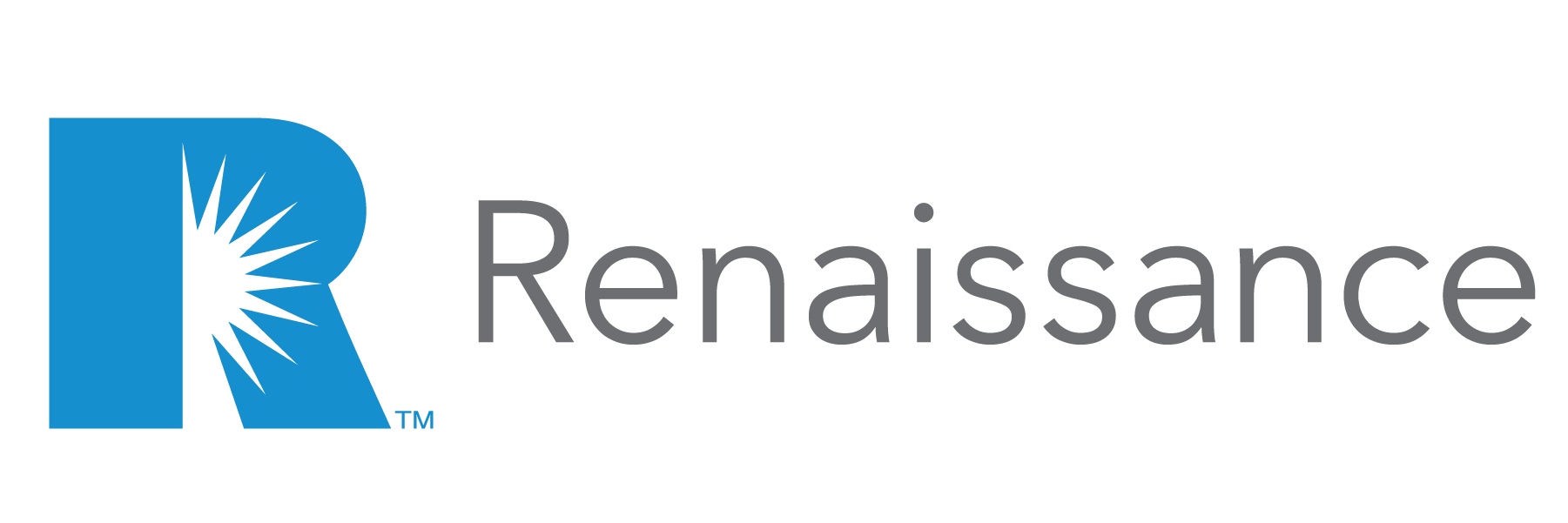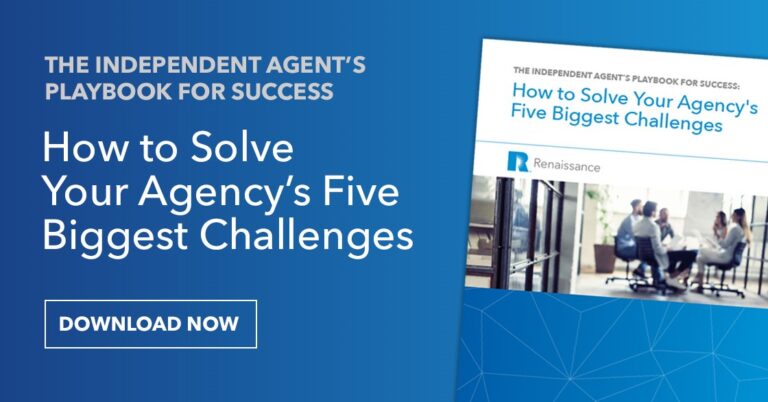Whether you’re looking to hire a new producer or office staff, recruiting insurance agents and other agency talent is one of the greatest challenges currently faced by independent insurance agencies.
Agency principals will tell you that attracting new business isn’t a problem: rather, the much harder task they face is keeping up with the current workload of serving existing clients.
According to the 2023 Independent Insurance Agent Survey conducted by National Underwriter Property & Casualty magazine and the National Association of Professional Insurance Agents (PIA), nearly 67% of agents’ businesses grew in 2022, with more than a quarter of those agencies reporting 10% growth or more.
That growth can come with a price: burnout. Knowing how to recruit insurance agents and customer service reps (CSRs) has become a prized skill in keeping independent insurance agencies well-staffed and running smoothly.
If you’re an agency owner wondering about the best way to recruit insurance agents, you’re not alone. Half of the respondents to the National Underwriter/PIA survey reported that attracting and retaining agency talent is their No. 1 challenge.
Recruiting new talent for your agency is neither cheap nor easy, but applying the appropriate time and due diligence to the process will help you attract quality candidates.
When is the right time to recruit insurance agents?
Understanding the demographics of the talent pool is helpful to understanding your options for recruiting insurance agents. Eleven percent of insurance agents are currently between 20 and 30 years old, while 23% of agents are 30 to 40 years old. In the next decade, the number of agents is expected to grow by 6%.
With these statistics in mind, you can begin to assess how much you’re willing to invest in new talent versus someone more experienced. That decision will look very different for various agencies, depending on what you can afford.
Expanding your staff will not only help with your workload, but it also helps boost morale. Adding more agents or CSRs can help bring positive change to the culture of your agency. If your agency possessed additional expertise in marketing risks, turnaround time for securing coverage could be greatly reduced – and your clients could be served faster.
Likewise, having additional help to handle time-consuming office tasks at your agency would enable you to spend less time on invoicing and billing, and devote more time to what you do best: selling.
Bringing in more producer talent also increases your chances of having one of your agents succeed you one day. If your financial and career endgame involves the eventual sale of your agency, you’ll need buyers – and experts say you’ll achieve a larger payout if you sell internally (over time) than you would by selling to someone outside your agency.
Why is insurance agency talent so hard to find?
 While recruiting insurance agents and CSRs has long been an issue for agency owners, it has become especially difficult in recent years. The COVID-19 pandemic forced professionals of all kinds to reassess their employment situations, and many agents who were performing well started asking themselves hard questions about whether they were being fairly compensated for their work and appreciated by their organizations.
While recruiting insurance agents and CSRs has long been an issue for agency owners, it has become especially difficult in recent years. The COVID-19 pandemic forced professionals of all kinds to reassess their employment situations, and many agents who were performing well started asking themselves hard questions about whether they were being fairly compensated for their work and appreciated by their organizations.
Agents and CSRs who weren’t being treated well – stuck at home without laptops or other professional support from their offices during lockdown – quickly realized that sometimes the grass is indeed greener on the other side.
In the process, prized talent has become even more valuable – and more expensive. Today, agents of all stripes are looking for some things they didn’t previously: many now expect a hybrid work week. Others expect a certain level of compensation for a determined amount of work ($80K a year, for example, for dialing the phone 22 times a day). Benefits plans are also desirable.
Agencies that offer all three possess a distinct edge.
“The Great Resignation has fueled people to take a look at their own situations,” says Diana Gazzolo, Insurance Recruiter for Martin Grant Associates in Newton, Mass., which sources talent throughout the insurance industry. “They’ve found themselves asking, ‘Do I have the best deal?’ Hungry people who weren’t being communicated to, left.
“The key to retaining producers is, if they’re happy, don’t ignore them,” she adds.
If you can find them, that is – and therein lies the challenge.
How to recruit insurance agents
The first step to recruiting independent agents, Gazzolo explains, is understanding that agents can be separated into three groups:
- Trainable entry-level talent;
- Those of mid-level experience, who book about $100K in revenue per year; and
- Experienced producers who bring in between $300K and $500K in revenue.
Knowing which level of producer talent you can afford for your agency is key, and will determine where you search for them.
What to look for in potential insurance agents
- Strong communication skills: Client responsiveness will be critical to your agency’s efforts, as is being a good communicator. The ideal candidate will want to make him-/herself helpful during the claims process, not just during the sales process.
- Confidence: The candidate will bring positive energy to your staff without an equal dose of egotism.
- Sales Acumen: Sales skills are highly desired, as well as niche knowledge of specific products and lines of business. Additionally, a candidate’s desire to continuously study exposure trends will help your agency manage your clients’ evolving risk profiles.
- Resilience and Perseverance: Experienced agents understand the power of persistence, and can tell whether that tenacity is present in a potential hire.
Finally, never underestimate the value of emotional intelligence. Some things simply can’t be taught.
7 Tips to make recruiting insurance agents easier:
Create a recruiting message
 First, craft a message that articulates the value of joining your agency. Sell the upside potential of becoming part of your team.
First, craft a message that articulates the value of joining your agency. Sell the upside potential of becoming part of your team.
Highlight the unique selling points of your agency. Why would a producer or a CSR want to work for you? Recall what we stated earlier about what talented potential recruits desire most. What’s in it for them? Clearly communicate the benefits, growth opportunities, and work environment offered to potential candidates.
Use persuasive language to attract and engage qualified individuals. If you want talented people, you need to convince them to put their skills to work for you.
Search for candidates on these social media platforms
When it comes to finding more experienced producers, agency principals looking to do it on their own rather than using a recruiter can run ads on ZipRecruiter.com and Indeed.com, says Nolan Duda, Sales Manager for IdealTraits, a Michigan-based company founded by insurance agency owners that specializes in helping agencies learn how to recruit insurance agents and other top-level talent for their agencies.
Ask for referrals
Leveraging your own network is equally important when sourcing agents, says Duda. Often, finding producer talent that might be a good fit for your agency comes down to relationship recruiting. Putting the word out via your local Rotary Club or Chamber of Commerce can only help.
Agency owners need to be constantly networking and developing your own pipeline in case the need for a new producer arises, says Gazzolo. For example, “If you meet a young agent at a golf outing who you’re impressed with, get his card.”
Duda agrees that staying on the hunt for good talent year-round is a mindset worth adapting – whether you’re using a recruiter, online job boards, or your local network: “In the long run, always being on the lookout for talent can only help you.”
Gazzolo notes that if you’re looking to poach a top-level producer from another agency, their account managers often have to go with them. These candidates are harder to find, but they’re out there – and can be tempted to move when, for example, their agency is purchased and the new owners are disrupting their process.
Look for candidates with a sales background
 The best way to recruit insurance agents that won’t cost you as much is to scout young talent that you can cultivate.
The best way to recruit insurance agents that won’t cost you as much is to scout young talent that you can cultivate.
Trainable, entry-level talent, Gazzolo explains, can be found working for businesses such as Enterprise Rent-a-Car, which is known for its training programs; leasing companies, like Xerox, where sales employees are experienced in cold calling; and restoration companies.
If you’re able to attract members of this set, Gazzolo says, you’ll still need to pay them a base salary in order to provide them reliable income to live on. Bear in mind that once they prove themselves, they’ll have to be compensated further.
Use a recruiting agency
Agency principals who have the budget to do so may prefer to invest in a recruiter to find the best agent for their business. (This is an especially effective option for sourcing top-flight talent.)
Recruitment firms have a variety of relationships to draw upon, and are aware of high-value candidates who might be looking for a new situation. Not all of the best agents in the business are continually employed, but a great many are – and using a recruiter will often prove a wise investment for time-strapped agency principals.
According to Gazzolo, the same amount of work is required by a recruiter to find the right producer candidate for a client, regardless of their skill level; no one is harder to hire than the other. Equal effort is required (approximately 230 to 240 outreaches) to provide the appropriate person for an agency.
Agency owners who would rather search for producer talent on their own need to determine who to pursue, and where to go to find them.
Pay attention to the candidate’s attitude
During the interview process, evaluate your candidate’s attitudes toward agency challenges, teamwork, and client service. Present them with realistic scenarios of what working in your agency can be like in your day-to-day, and how they might respond to pressure.
Look for positive and proactive individuals who demonstrate a strong work ethic and a willingness to learn. Regardless of the candidate’s skill level or intelligence, always pass on the know-it-alls.
Challenge their opinions and their way of thinking
 Engage candidates in thought-provoking discussions while interviewing them, in order to assess their critical thinking skills. You’ll discover quickly whether someone is a creative thinker who could be granted autonomy, or someone you’d have to monitor constantly.
Engage candidates in thought-provoking discussions while interviewing them, in order to assess their critical thinking skills. You’ll discover quickly whether someone is a creative thinker who could be granted autonomy, or someone you’d have to monitor constantly.
Present them with hypothetical scenarios and ask how they might solve them. This is especially important to consider when screening CSRs, which are often the first people your customers will reach when they have an issue.
How to hire CSRs or office staff
One deep talent pool for independent agencies looking to hire customer service reps or office staff is Generation Z, which the Pew Research Center defines as those born between 1997-2012 and are relatively new to the adult workforce.
Mark Beal, assistant professor of professional practice, communication at Rutgers University School of Communication and Information and the author of “Gen Z Graduates to Adulthood,” explains that young professionals in this demographic are especially purpose-driven when it comes to the jobs they select. While the insurance industry can fall short in marketing itself as purveyors of a social good, independent agencies have the opportunity to reinforce that message when recruiting.
“Members of Gen Z want to work for companies that have a higher purpose, that contribute to a better society,” says Beal. “They want to feel good about the work they’re doing.”
Beal suggests that agency principals looking for someone to manage their social media channels would do well to employ Gen-Zers, as they are digital natives and are well suited for the task.
These potential hires can be sourced via LinkedIn and through universities, which often have career offices staffed with full-time career advisors whose purpose it is to connect students with jobs. Again, emphasizing the social-good component of the insurance business will make working for your agency more attractive.
Beal adds that once you employ members of this set, some of the keys to keeping them include fostering diversity among your staff; embracing technology that makes your processes more efficient (using outmoded systems will cause them to look elsewhere); providing mental health days; and possessing a genuine interest in them and their career. Provide them stipends to go to a conference, or for training. Help them and empower them as professionals, rather than just giving them a paycheck.
When hiring within this demographic, Gazzolo suggests agency owners do a salary equanimity check through a recruiter or indeed.com to ensure that their personnel are being paid competitively. If you attempt to pay them less than what they’re worth, they’ll find out – and they won’t stay with you for long.
To hire the best, stay patient
 While recruiting new talent is neither easy nor cheap, it’s not impossible – it just takes time and patience. Duda says that sometimes, that’s longer than an agency principal wants to spend: “They don’t always have the luxury of being patient.”
While recruiting new talent is neither easy nor cheap, it’s not impossible – it just takes time and patience. Duda says that sometimes, that’s longer than an agency principal wants to spend: “They don’t always have the luxury of being patient.”
His advice? Don’t rush the process. “If you do, you might end up filling the position with a candidate who isn’t right for you,” he says. “Always be on the lookout for new talent, stay patient, and do your due diligence when hiring.”
Gazzolo agrees. “Devote your energies to hiring the best,” she says. “As exhausting as it may sound, don’t take your hand off the throttle as an agency owner during the decision process.”
Once you’re reviewing candidates, know that the inexpensive option isn’t always going to be the best option. “Gauge their personality,” says Duda. “Trust your gut feeling when it comes to hiring, but have all the information available on hand when you make that decision. Just because someone is licensed and has a good resume doesn’t necessarily mean that they can sell insurance at a high level.”
In the end, there’s no single best way to recruit insurance agents; diversifying your efforts is essential to finding the right person for the job.
“Since the beginning of time, one-third of jobs have been filled through an ad, one-third have been filled through referrals, and one-third through recruiters,” adds Gazzolo. “The best search is all three.”







